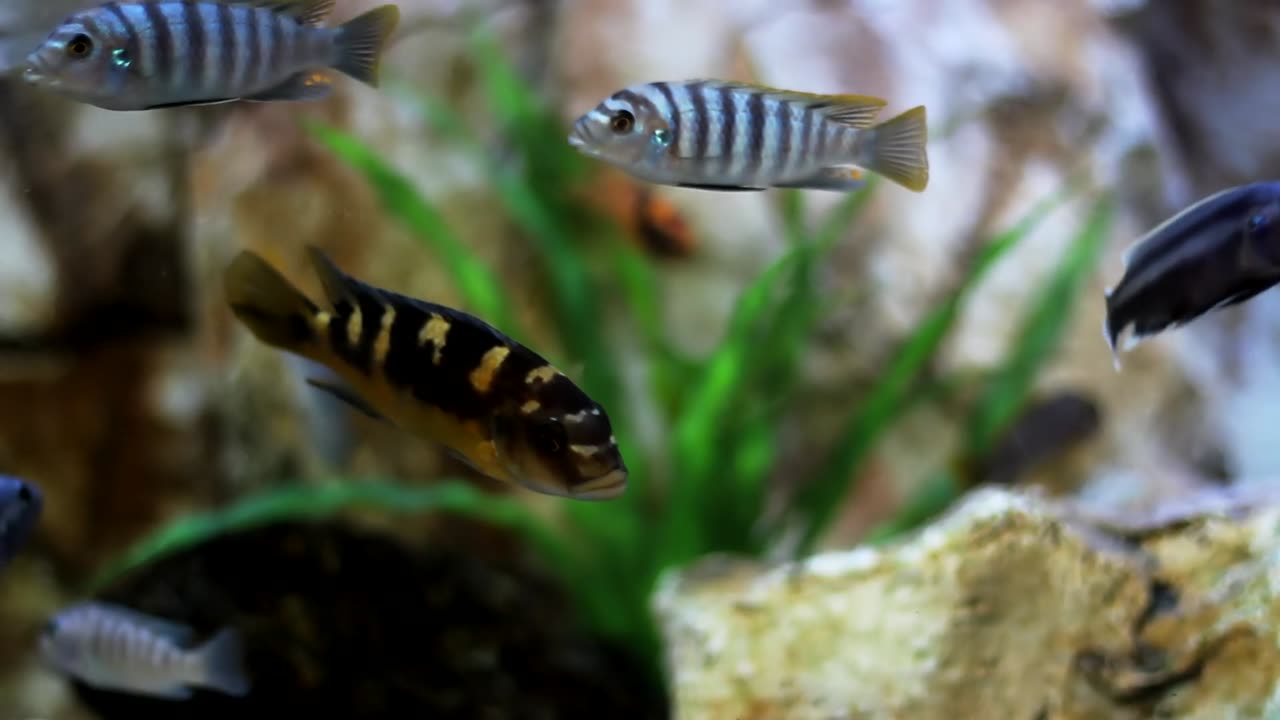Premium Only Content

greate fish
Sustainable Fishing Practices: There's a growing global awareness of the importance of sustainable fishing practices to preserve fish populations and marine ecosystems. Consumers are increasingly seeking out sustainably sourced fish and seafood, leading to certifications like Marine Stewardship Council (MSC) becoming more prevalent.
Aquaculture Expansion: As wild fish stocks face depletion due to overfishing and environmental changes, aquaculture continues to expand to meet the growing demand for seafood. This trend includes not only traditional fish farming but also innovative approaches such as land-based recirculating systems and offshore aquaculture.
Rise of Alternative Seafood: Concerns over sustainability, animal welfare, and environmental impact are driving the development and popularity of alternative seafood products. These include plant-based seafood substitutes, cell-cultured (lab-grown) seafood, and even seafood made from algae and other non-animal sources.
Traceability and Transparency: Consumers are increasingly interested in knowing where their seafood comes from and how it was caught or farmed. This has led to greater emphasis on traceability and transparency throughout the seafood supply chain, with technology playing a crucial role in enabling better tracking and documentation.
Health and Nutrition: Fish is recognized as a nutritious source of protein, omega-3 fatty acids, vitamins, and minerals. As health-conscious consumers seek out foods that contribute to overall well-being, fish consumption remains popular, particularly for its perceived health benefits.
Innovation in Packaging and Processing: Innovations in packaging and processing techniques aim to improve the freshness, flavor, and shelf life of fish products while minimizing waste. This includes advancements in vacuum packaging, modified atmosphere packaging, and sustainable packaging materials.
Cultural and Culinary Exploration: As global connectivity increases, consumers are becoming more adventurous in their culinary preferences, leading to a growing interest in exploring diverse fish species and seafood dishes from different cultures and regions around the world.
Climate Change Impacts: Climate change is affecting fish populations and marine ecosystems, leading to shifts in distribution, altered breeding patterns, and changes in fishery management practices. Adaptation strategies and sustainable management approaches are essential to mitigate these impacts and ensure the long-term viability of fisheries.
These trends collectively reflect the evolving dynamics of the fish and seafood industry, driven by factors such as environmental concerns, technological advancements, changing consumer preferences, and the need for sustainable resource management.
-
 LIVE
LIVE
Steven Crowder
2 hours ago🔴 Why Canada's Election Results Are A Golden Opportunity For Trump, America & Alberta
83,218 watching -
 LIVE
LIVE
The Rubin Report
1 hour agoPress Gasps When Told Trump’s Executive Order for Sanctuary Cities
3,642 watching -
 LIVE
LIVE
Bannons War Room
2 months agoWarRoom Live
16,486 watching -
 UPCOMING
UPCOMING
The Shannon Joy Show
1 hour ago🔥🔥Doctors Of Death. The Transformation Of America’s Health System Into A Death System Post COVID - With Special Guest Dr. Clayton Baker🔥🔥
132 -
 LIVE
LIVE
BitLab Academy
57 minutes agoEthereum Mega Pump Loading? Bitcoin Price Targets | Altcoin Super cycle?
295 watching -
 LIVE
LIVE
LFA TV
15 hours agoALL DAY LIVE STREAM - TUESDAY 4/29/25
3,560 watching -
 LIVE
LIVE
The Big Mig™
3 hours agoWho The Fook Is That Guy? Another Nobody Going After Trump!
2,889 watching -
 1:00:49
1:00:49
VINCE
3 hours agoJB Pritzker Has Big, Fat Presidential Ambitions | Episode 32 - 04/29/25
152K189 -
 LIVE
LIVE
Badlands Media
9 hours agoBadlands Daily: April 29, 2025
4,398 watching -
 1:06:54
1:06:54
Committee on House Administration
6 days agoFull Committee Hearing: “Why the Wait? Unpacking California’s Untimely Election Counting Process”
56